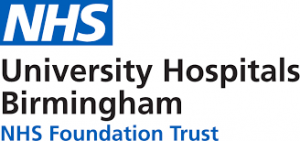Learning from one renal unit’s transformation in response to COVID-19

Authors
Miriam Berry, Graham Lipkin, Adnan Sharif, Nick Inston and Steve Mellor
Summary of beneficial changes – recovery of transplantation
- Individual patient discussions to confirm consent to be re-activated
- Modified consent process to discus COVID risk with or without renal transplantation
- Collaborative multi-disciplinary working to support decision making and optimise patient care
- Pathway for recipient assessment and rapid turnaround COVID-19 testing
Summary of beneficial changes – transplant outpatient follow-up care
- Early implementation of modified immunosuppression protocol for renal transplant patients with suspected or confirmed COVID-19 infection
- Twice weekly joint surgical/medical outpatient clinic for essential visits, re-configured and reduced to ensure social distancing
- Individualised management plan for all transplant patients utilising off-site phlebotomy and telephone/video clinics to maintain safe follow up while reducing hospital visits
- Centralised management of patients under satellite clinics to share resources
- Pharmacy review to ensure judicious supply of immunosuppression
- Regular use of social media to disseminate updated guidance to transplant population
Acute transplantation activity: Suspension and recovery
University Hospitals Birmingham (UHB) provides renal transplantation services to a catchment area of approximately 5 million people across the Midlands, offering improved quantity and quality of life to patients with kidney disease. We perform more than 180 kidney transplants annually and have one of the longest waiting lists in the UK.
The West Midlands, and in particular UHB, experienced very high rates of COVID-19 related hospital admissions with significant impact on Intensive Care services. As a result our renal transplant programme was suspended in late March 2020 due to concerns about the safety of surgery and immunosuppression in an unfamiliar and rapidly evolving health crisis. However, our renal patients have been disproportionately affected by COVID-19 (in particular those patients receiving in-centre haemodialysis) emphasising the importance of timely and safe resumption of transplant activity.
Recovery of transplant activity
- Prioritised in-centre haemodialysis patients as those at highest risk of acquiring COVID-19 during a second wave of infection and having the most to gain from prompt transplantation
- MDT review, in conjunction with referring units, of all in-centre haemodialysis patients on the transplant waiting list to identify those at lowest anaesthetic, surgical and immunological risk to re-activate first
- Initially accepting DBD organ offers only to reduce risk of delayed graft function and prolonged hospital stay
- Individual patient discussions to confirm their consent to be re-activated at the current time
- Modified consent process to discus COVID risk with or without renal transplantation
- Collaborative multi-disciplinary working to support decision making and optimise patient care
- Pathway for recipient assessment and rapid turnaround COVID-19 testing
- New “cold” multi-organ surgical ward to provide safe peri-operative care
- Reconfiguration of outpatient follow-up (see next section)
- Weekly review of organ offers and patients awaiting re-activation to expedite safe expansion of the programme
Outpatient follow-up care
Background
UHB (covering Queen Elizabeth and Heartlands sites) provides outpatient follow-up for approximately 1,500 renal transplant patients. Frequency of follow-up ranges from twice weekly immediately post-transplant to four monthly after several years. Until now patients have been cared for in a surgical clinic for the first six weeks post-transplant then moving to physician led care thereafter, with a schedule of follow-up appointments based on time since transplant and clinical need. We see approximately 250 transplant patients each week at the QE site, with regular transplant clinics also running at Heartlands Hospital, Solihull Hospital and Smethwick Kidney Treatment Centre.
Challenges
All non-essential outpatient activity at UHB was suspended in March 2020 to reduce hospital attendances and to facilitate the redeployment of staff to inpatient areas. Transplant recipients were advised to follow shielding advice as “extremely vulnerable” individuals and were, in many cases, understandably reluctant to leave home. However we needed to ensure regular monitoring of transplant function and drugs, a secure supply of immunosuppression medications and provide ongoing specialist medical care of patients with COVID-19 or unrelated illnesses.
Re-configuration of outpatient care
- Early implementation of modified immunosuppression protocol for renal transplant patients with suspected or confirmed COVID-19 infection
- Regular telephone contact with unwell transplant patients able to stay at home then dedicated “hot” COVID follow-up clinic when asymptomatic
- Register of all such patients to ensure appropriate immunosuppression monitoring and follow-up chest X-ray and tissue typing samples where necessary
- Twice weekly joint surgical/medical outpatient clinic for essential visits, re-configured and reduced to ensure social distancing
- Individualised management plan for all transplant patients utilising off-site phlebotomy and telephone/video clinics to maintain safe follow up while reducing hospital visits
- Centralised management of patients under satellite clinics to share resources
- Pharmacy review to ensure judicious supply of immunosuppression
- Regular use of social media to disseminate updated guidance to transplant population
Key points
- MDT collaboration is crucial, nephrologists, surgeons, specialist nurses and pharmacists all played an essential role
- An early plan to modify immunosuppression was vital
- Embrace technology to support clinical care
- Use social media as well as more traditional methods to communicate with patients
